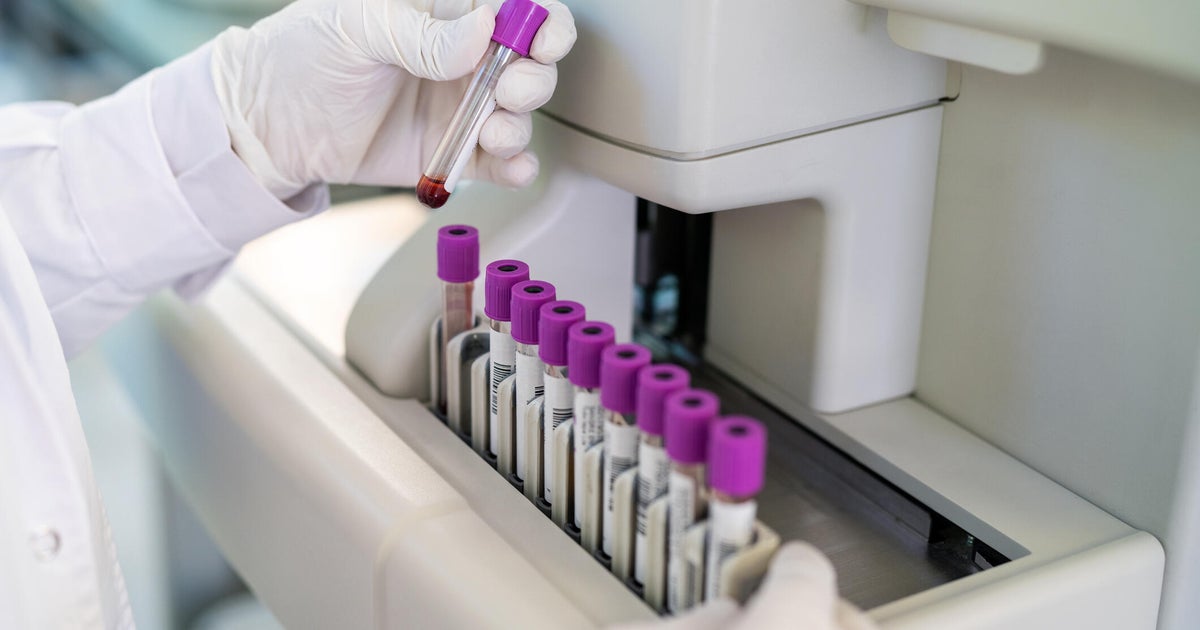I'm a diabetic - but why is everyone else suddenly obsessed with blood sugar?
Disclaimer: The views expressed in this feature are those of the author, based on her personal experiences, her interpretation of publicly available information and the current science.
Speaking from experience, there isn’t much that’s great about type-1 diabetes. I’ve been dealing with my useless pancreas and its inability to produce insulin since I was diagnosed 11 years ago, and have experienced all the highs and lows (literally) of the illness. The one good thing I’ve found, however, is the comradeship with other type-1 diabetics as we spot each other out in the wild. We’re easy to identify, not because we can magically sense each other’s blood sugar levels, but because we often wear continuous glucose monitors (CGMs).

I’ve had people wave me down in the street to show me their CGM, tap me on the shoulder at the gym and even give me a kind of arm-to-arm high five to celebrate our matching dodgy pancreases. This is usually followed with a little diabetes small talk: how long I’ve had it, my favourite hypo snack, etc. So, when I innocently struck up a conversation with someone wearing a CGM while in the queue for the loo – asking them how long they’ve had the "old type-1" – you can imagine my surprise when they gave me a look somewhere between confusion and disgust. They weren’t type-1 diabetic; they were just tracking their blood glucose for weight management. Then, it was my turn to look confused.
Since my embarrassing encounter, the rise of CGMs has been prolific. Society’s collective obsession with our blood glucose levels has skyrocketed. From ZOE and Freestyle Libre, to Dexcom and Lingo, there are more ways than ever to track your blood sugar. Health influencers are forever warning us against the dangers of a ‘glucose spike’, offering us advice on what to eat to avoid this. But, if you’re a healthy person, do you really need to be tracking your blood sugar levels? Is it so bad if your blood glucose occasionally spikes? And, what is considered a spike, anyway? This is what I sought to find out.
I wear a CGM to manage my type-1 diabetes (T1D). This autoimmune disease means my pancreas does not produce insulin, which is the hormone your body uses to turn glucose from food into energy. Carbohydrates are our main source of glucose, which your organs need to survive. I count the amount of carbohydrates in my food to match the dose of insulin I need. My CGM is linked to my insulin pump, which provides me with insulin around the clock.
If I were to stop administering insulin, I would not be long for this world. I need to control my blood sugar levels because glucose is osmotically powerful. This is a fancy way of saying that when glucose comes into contact with your inner single cells, it can pop them and cause damage, which can lead to symptoms such as eye damage, weight loss, recurrent infection, coma and death. For these reasons, for me, a CGM is a valuable tool that helps me manage my condition so I can get on and live my very best life.
It seems the more data we can collate, the more we want to track and control, whether it’s how well we sleep, the number of steps we take or our blood sugar response to certain foods.
CGM company Abbott, which makes both FreeStyle Libre and Lingo (the latter being an over-the-counter option for people without diabetes), says Lingo helps users understand which foods and activities influence their blood sugar so they can make healthier choices. As a wellness tool, Lingo differs to FreeStyle Libre in that it has less functionality and is not recommended for medical use, including the management of diabetes. The ZOE programme also uses a CGM as part of the initial two-week testing phase; users can assess their individual responses to foods by experimenting with meals and the other factors that influence blood-sugar levels.
However, the key question remains: does your blood sugar level need to concern you if you’re not diabetic? I spoke to Elisabeth Cresta, specialist diabetes dietitian at Imperial College Healthcare, who says: "Our bodies are equipped to adjust the amount of insulin release based on the rises and falls in our glucose levels. Certain foods will cause higher blood sugar rises than others, and the body is well-equipped to manage these."
Even if your individual glucose response is irregular, the experts I spoke to were still unsure of any benefit of knowing your reading. Essentially, if your reaction to foods is individual, your body’s response will be too: it knows what to do when its blood sugar spikes. Dr Nicola Guess, an academic dietitian and researcher at the University of Oxford, echoes this, saying: ‘There is no evidence that we see glycemic variability being a contributor to adverse health." She goes on to say, "Glucose is a negligible marker of health in people without diabetes."
And, Elisabeth Cresta states that: "Individual recorded spikes on a CGM should not be used to make firm dietary changes." This makes me wonder what the purpose of a CGM is for anyone not needing it to manage their diabetes.
There’s no denying that CGMs are expensive. ZOE’s most basic plan – which, as well as assessing your body’s response to blood sugar, evaluates your response to fat and includes a gut health analysis – retails for £299 plus the £24.99/month subscription fee and includes the benefits of the ZOE app. I asked Professor Gary Frost, professor of nutrition and dietetics at Imperial College London, for his opinion. He said: "If you do not have a diagnosis of diabetes, there is no evidence that monitoring or trying to manipulate your blood glucose results in any long-term health advantage."

Not all medical professionals are against CGM use in non-diabetics. It has been suggested that monitors can be helpful in spotting diabetes early on. Dr Robert H. Shmerling notes that "CGM use might allow earlier diagnosis of prediabetes or diabetes. This could be particularly helpful for people at higher risk for diabetes due to family history or other factors, and people taking medicines that can raise blood sugar."
Others see over-the-counter CGMs as an accountability tool and argue that they can be great motivators, allowing the user to see in real time the benefits of eating earlier in the day or doing that extra gym session.
For my part – and after speaking to the experts – I’m not convinced that CGM use in non-diabetics offers any tangible evidence to aid health and well-being. Being curious about what your blood sugars look like is one thing, but making restrictive health choices based on this data is quite another. I’ll leave the last word to Dr Guess, who makes the comment that "If the 10s of millions that are being spent on personalised nutrition initiatives (that so far when tested properly, are simply no more effective than generic healthy eating) could be spent on fixing our food system (such as taxes on unhealthy high-sugar foods and subsidisation of healthy foods), we could genuinely make a dent in diet-related disease prevalence."
Zoe review
What is personalised nutrition?
Best personalised nutrition tests 2024, tried and tested
How to eat to manage diabetes – top 10 tips
All health content on goodfood.com is provided for general information only, and should not be treated as a substitute for the medical advice of your own doctor or any other health care professional. If you have any concerns about your general health, you should contact your local health care provider. See our website terms and conditions for more information.












